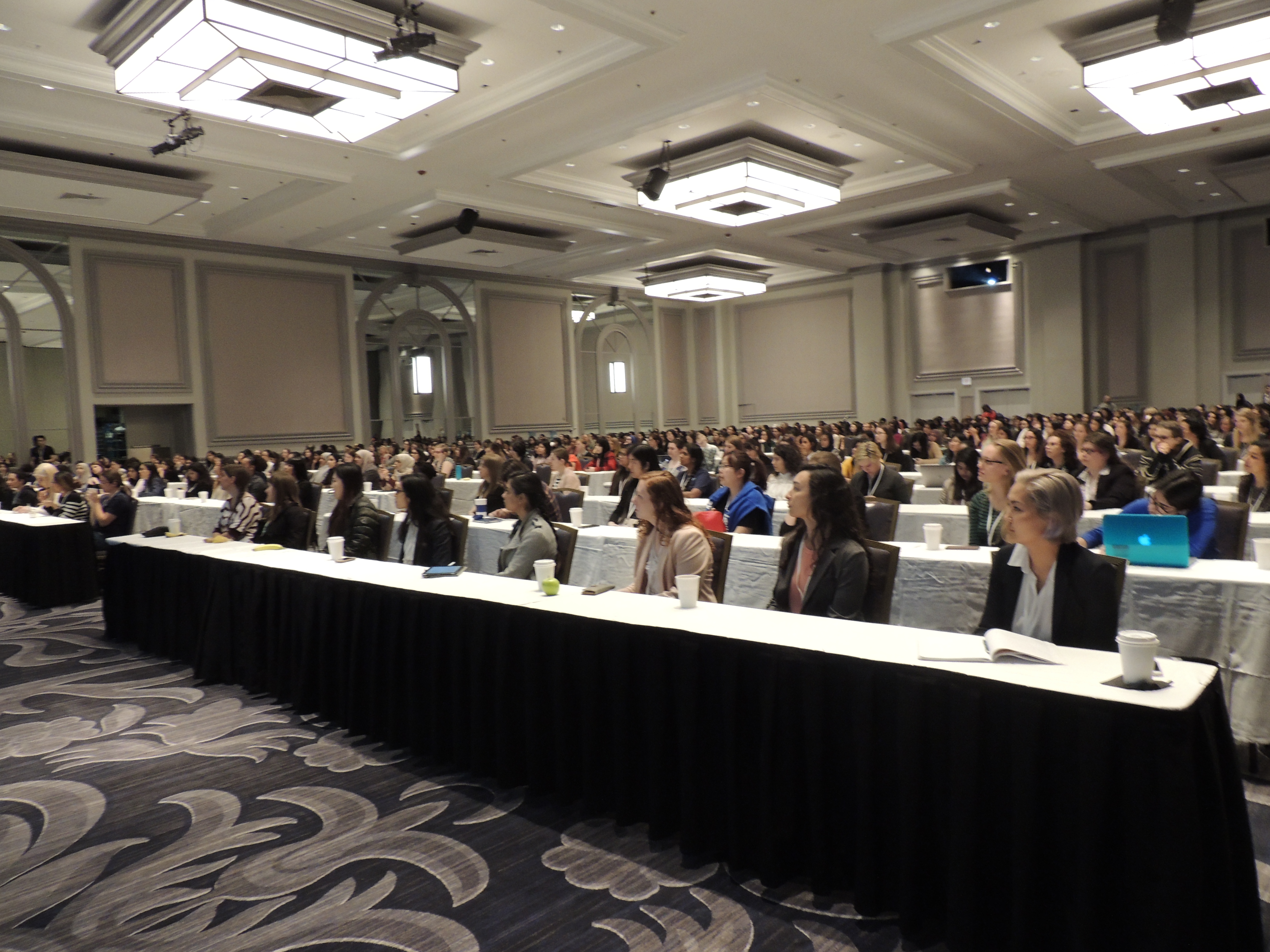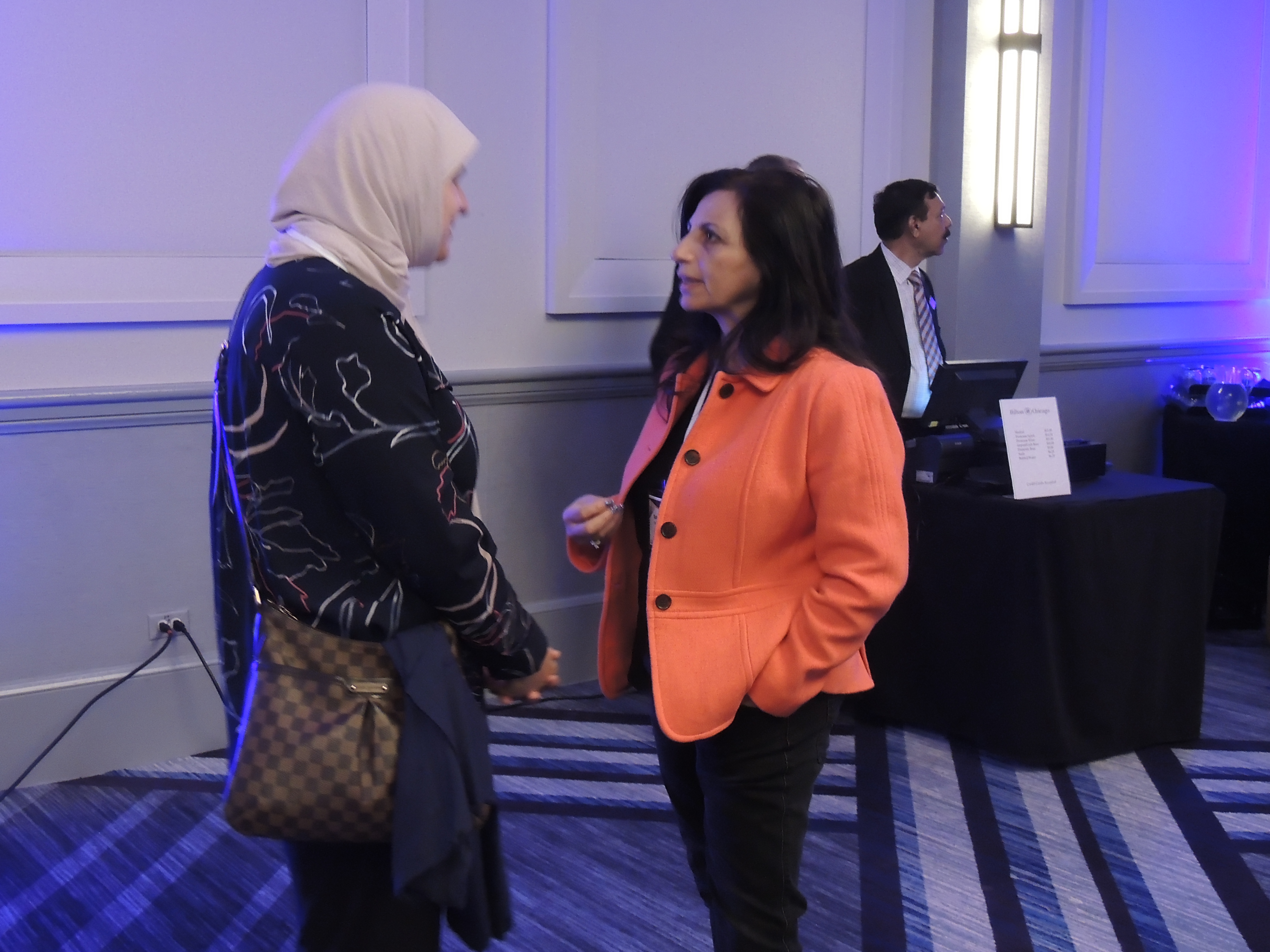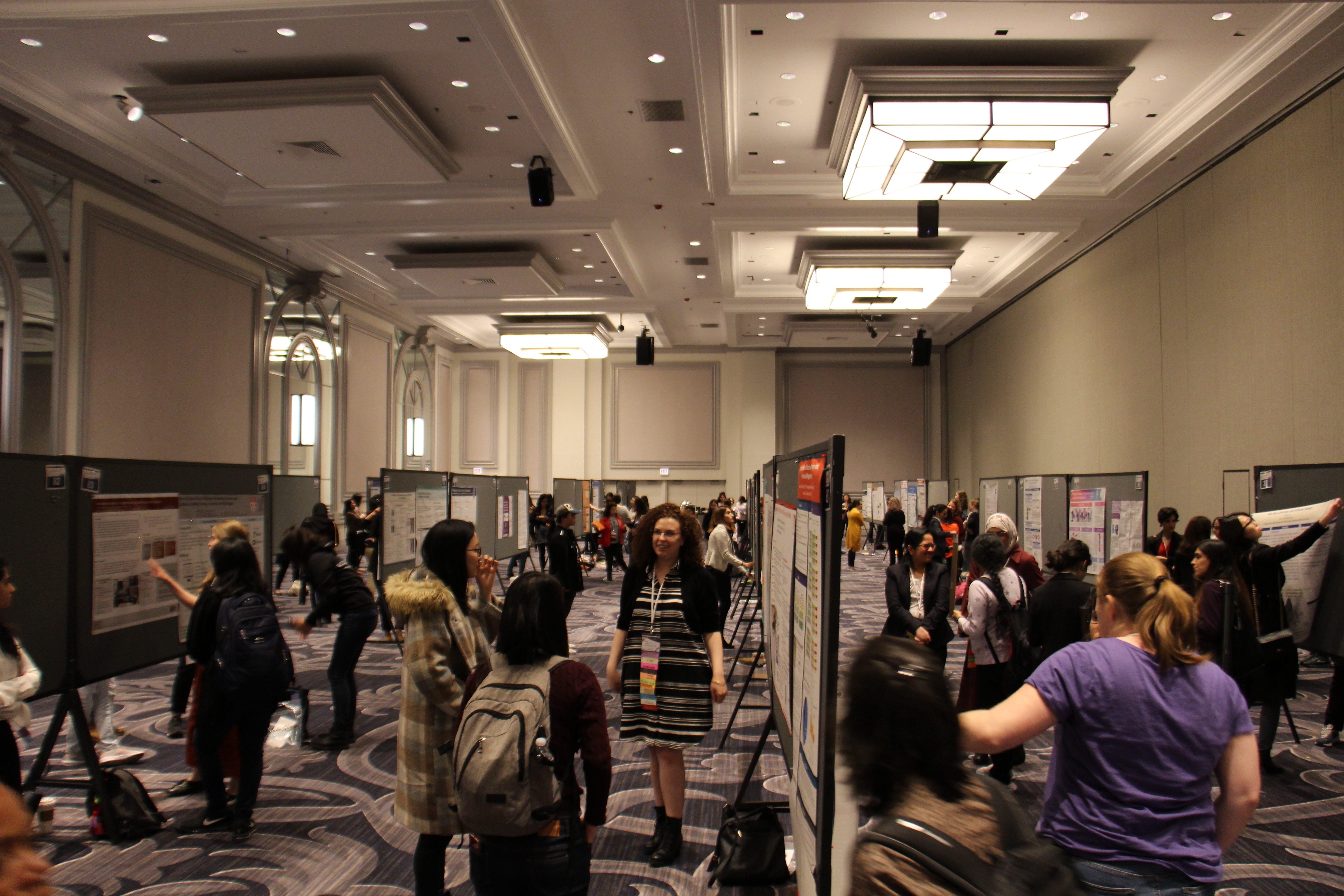Expanding the Pipeline: 2019 CRA-W Grad Cohort for Women Strengthens Community of Women in Computing
By Patty Lopez, Intel and Shar Steed, CRA
On April 12-13, CRA-W hosted the 2019 Graduate Cohort for Women (CRA-W Grad Cohort) at the historic Chicago Hilton. The location provided elegance and grandeur as students spent two days in sessions tailored for their graduate student experience, based on their year in the program. Workshop participants had access to other participants, speakers, and the program through the CrowdCompass AttendeeHub mobile app, plus many opportunities to network with peers and senior researchers. They also had opportunities to meet and talk to potential employers during the workshop.

The 2019 Workshop
 More than 400 graduate students in computer science from 158 institutions in the U.S. and Canada attended the event. The workshop kicked off Thursday evening with a welcome reception. Friday morning started with a welcome from the conference co-chairs Maria Gini, University of Minnesota, and Ayanna Howard, Georgia Tech. An exceptional keynote on myth busting was presented by Radhika Nagpal from Harvard University. She generously stayed two hours after her talk to answer questions from participants.
More than 400 graduate students in computer science from 158 institutions in the U.S. and Canada attended the event. The workshop kicked off Thursday evening with a welcome reception. Friday morning started with a welcome from the conference co-chairs Maria Gini, University of Minnesota, and Ayanna Howard, Georgia Tech. An exceptional keynote on myth busting was presented by Radhika Nagpal from Harvard University. She generously stayed two hours after her talk to answer questions from participants.
The workshop featured a mix of formal presentations and informal discussions, as well as social events. Friday sessions hosted topics such as “Networking,” “Master’s vs Ph.D.,” “M.S. Career Opportunities & Job Search,” and “Presentation & Other Verbal Communication Skills” for first-year students, and “Finding a Research Topic (including Interdisciplinary),” “Publishing Your Research,” and “Balancing Graduate School & Personal Life” for second-year students, and “Industry vs. Academic Research Position,” “Preparing Your Thesis Proposal & Becoming a Ph.D. Candidate,” “Ph.D. Academic Career Paths & Job Search,” and “Ph.D. Non-Academic Career Paths & Job Search” for third-year students.
Of particular interest was a panel discussion on “Perspectives from Grad Cohort Alums,” during which panelists talked to second-year graduate students and encouraged them to move past their “graduate school mid-life crisis” by making the best use of the workshop sessions to learn how to cope, to build their professional networks—few other events provide this type of networking of near-peers and senior researchers—and to seek mentors and role models in the speakers, who are accessible and approachable.

One hundred fifty-six students submitted abstracts for the poster session held on Friday afternoon, covering a wide range of areas including algorithms, artificial intelligence, bioinformatics, biomedical informatics, computational imaging, computational science, computer architecture, computer vision, CS education, data mining, data science, data visualization, distributed computing, embedded systems, high-performance computing, human-robot interaction, human-computer interaction, information retrieval, machine learning, medical cyber-physical systems, medical imaging, mobile systems, natural language processing, networks, neuromorphic computing, operating systems, programming languages, quantum machine learning, robotics, security and privacy, simulations, social networking, software engineering, speech processing, statistical inference, theory, and vision. The poster sessions provided students with the opportunity to present their research, share their expertise, and exchange ideas with other participants, speakers, and sponsor representatives.
 The Friday evening reception, which was sponsored by Microsoft Research, featured a dance party, with an eclectic mix of international music and food. In the Saturday plenary session, “Strategies for Human-Human Interaction,” hosted by Jamika Burge, Capital One; Margaret Martonosi, Princeton University; and Kathryn McKinley, Google, the panel shared their work to advance gender diversity in computing. It was powerful to hear both how to address the topic directly and the open discussion about how harassment negatively affects the research climate, particularly for women. The panelists also shared methods for reporting sexual harassment, developing a support system, and techniques for managing relationships, both professional and personal. Students also shared stories about their experiences and received advice and support.
The Friday evening reception, which was sponsored by Microsoft Research, featured a dance party, with an eclectic mix of international music and food. In the Saturday plenary session, “Strategies for Human-Human Interaction,” hosted by Jamika Burge, Capital One; Margaret Martonosi, Princeton University; and Kathryn McKinley, Google, the panel shared their work to advance gender diversity in computing. It was powerful to hear both how to address the topic directly and the open discussion about how harassment negatively affects the research climate, particularly for women. The panelists also shared methods for reporting sexual harassment, developing a support system, and techniques for managing relationships, both professional and personal. Students also shared stories about their experiences and received advice and support.
The Saturday sessions were well attended with topics such as “Finding an Advisor & Developing an Effective Working Relationship with Them (& What to do if it Doesn’t Work)” and “Summer Internships” for first-year students, “Building Your Professional Persona” and “Building Self-Confidence” for second-year students, and “Entrepreneurship” and “Job Interviews” for third-year students. The afternoon individual resume/CV advising and individual academic/career advising sessions gave the participants an opportunity for one-on-one advice.
Thank You, Sponsors!
CRA-W Grad Cohort for Women would not be possible without the support of Association for Computing Machinery, Bloomberg, Computing Research Association, Facebook, Google, IBM, IEEE-CS Technical Committee on Computer Architecture, Intel, Microsoft Research, National Science Foundation, SIGACT, SIGARCH, SIGCHI, SIGCSE, SIGCOMM, SIGGRAPH, SIGIR, SIGHPC, SIGMICRO, SIGMOBILE, SIGOPS, SIGPLAN, SIGSOFT, SRC, U.S. Department of Energy Office of Science, and a private foundation.





